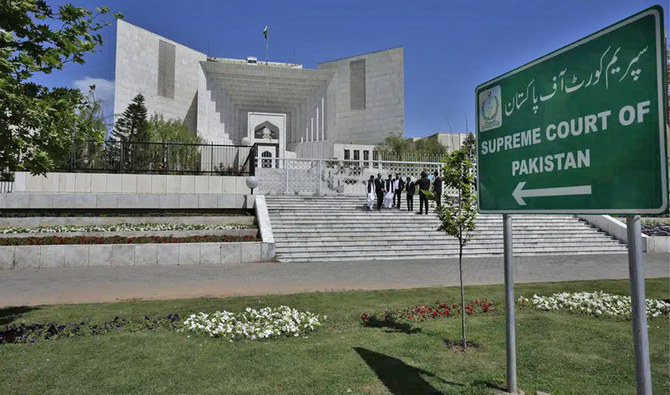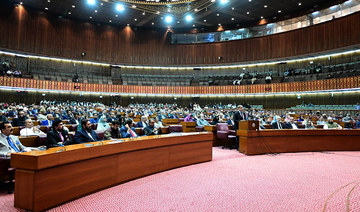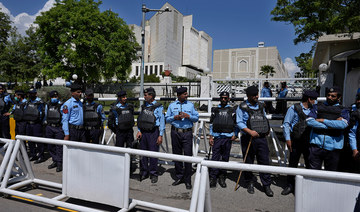ISLAMABAD: Amid an ongoing tussle between Pakistan’s government and judiciary over the delay in elections in Khyber Pakhtunkhwa and Punjab provinces, the country’s election regulator on Tuesday submitted a report to the Supreme Court of Pakistan regarding the funds it did not receive from the federal government.
In a landmark judgment last week, the apex court declared “unconstitutional” an earlier decision by the Election Commission of Pakistan (ECP) to delay polls in Punjab to October 8 and ordered polling in the province to be held on May 14. The apex court asked the government to issue funds for elections to the ECP by April 10, directing the election regulator to submit a report on the matter by April 11.
The verdict has put the government on a direct collision course with Pakistan’s judiciary, as the ruling Pakistan Muslim League-Nawaz (PML-N) has accused the chief justice and other members of the bench who issued the verdict of being biased against it. The government wants polling to be held on the National Assembly and provincial assembly seats on the same day. Pakistan’s parliament on Monday passed a resolution stressing general elections of all assemblies should be held simultaneously to strengthen the federation.
Instead of issuing the funds as requested by the top court, Finance Minister Ishaq Dar on Monday tabled a bill in parliament, seeking approval for the release of funds for elections. A National Assembly standing committee will discuss the bill and send its recommendations back for consideration.
On Tuesday, the ECP submitted its report to the Supreme Court’s Registrar Office in a sealed envelope without disclosing its contents to the media or the public. The report will be sent to Chief Justice Umar Ata Bandial’s chamber for further action. In its verdict last week, the Supreme Court had warned of action in case its orders to release the funds were not implemented.
“If the funds have not been provided or there is a shortfall, as the case may be, the court may make such orders and give such directions as are deemed appropriate to such person or authority as necessary in this regard,” the top court’s order had read.
The judgment was issued on a petition filed by former prime minister Imran Khan’s Pakistan Tehreek-e-Insaf (PTI) party, which had challenged the ECP’s decision to delay polls in Punjab and KP. Khan, whose PTI party and its ally dissolved the Punjab and KP assemblies in January to force the government to declare early elections, maintained in its petition that the election commission was bound by law to hold elections in both provinces within 90 days of the dissolution of assemblies.
Advocate Faisal Hussain, a prominent Supreme Court lawyer, said it was now the court’s prerogative to initiate action against those responsible for failing to comply with its orders.
“The Supreme Court judges may initiate appropriate action including a contempt of court against the prime minister [Shehbaz Sharif] after reviewing the election commission’s response in their chambers,” he told Arab News.
Hussain said the chief justice could also summon the finance secretary and other relevant government officials to instruct them to release the required funds. “The PTI may also move the court for the implementation of its clearcut order,” he added.
The government and judiciary’s confrontation takes place at a precarious time for Pakistan, with the South Asian country desperately looking to avoid an acute balance of payments crisis. Islamabad has so far failed to tackle soaring inflation and a host of economic problems, as it so far remains unsuccessful in reviving a crucial stalled bailout program with the International Monetary Fund (IMF).


















